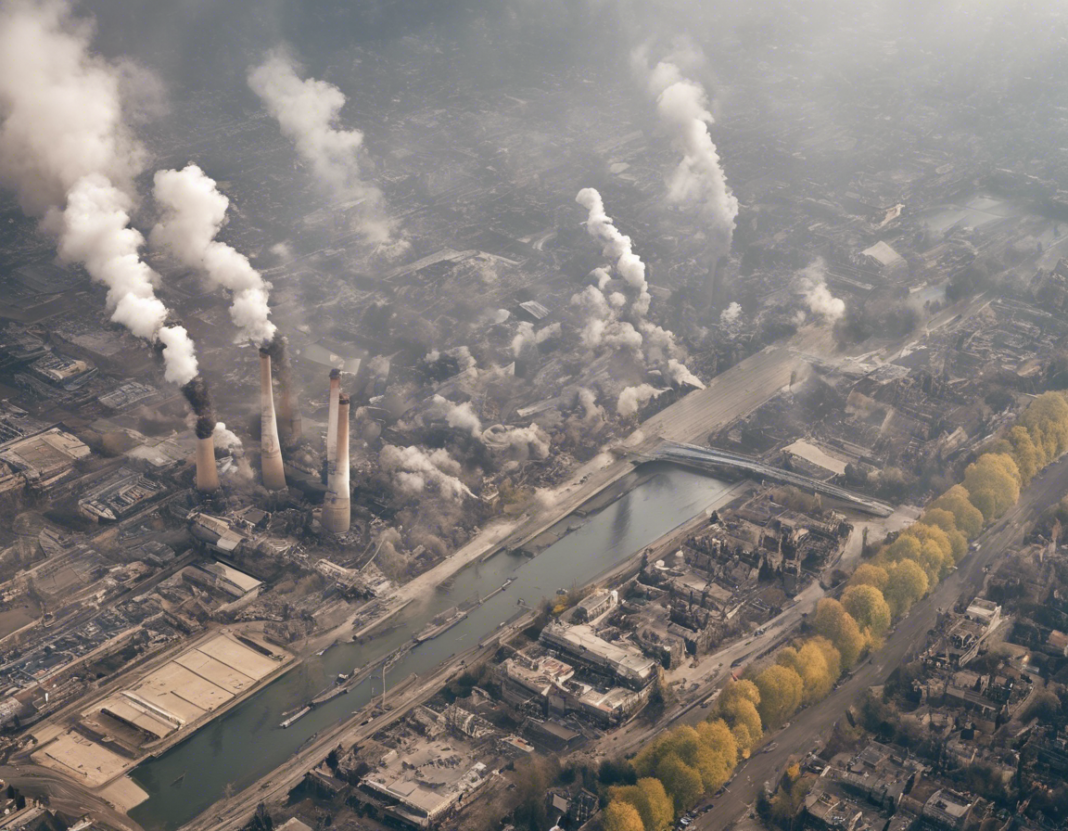Living in a city that is plagued by air pollution can have a significant impact on your health and well-being. I have personally experienced the effects of living in a smoggy city, and I want to share my insights with you. In this article, I will delve into the various aspects of air pollution, its causes, effects on health, ways to protect yourself, and how to advocate for cleaner air in your community.
Understanding Air Pollution
Air pollution is the presence of harmful or excessive quantities of substances in the air we breathe. These pollutants can be in the form of solid particles, liquid droplets, or gases. Common air pollutants include particulate matter (PM), nitrogen dioxide (NO2), sulfur dioxide (SO2), carbon monoxide (CO), and ozone (O3). These pollutants can come from various sources, including vehicle emissions, industrial activities, construction sites, and even natural sources like wildfires.
Causes of Air Pollution
There are both natural and human-made causes of air pollution. Natural sources include volcanic eruptions, wildfires, and pollen. However, the majority of air pollution is caused by human activities. The burning of fossil fuels, such as coal, oil, and gas for electricity and transportation, is a primary contributor to air pollution. Industrial processes, agricultural activities, and waste disposal also release pollutants into the air.
Effects of Air Pollution on Health
Exposure to high levels of air pollution can have serious health consequences. Short-term effects include irritation of the eyes, nose, and throat, coughing, chest tightness, and shortness of breath. Long-term exposure to air pollution can lead to respiratory diseases such as asthma, chronic obstructive pulmonary disease (COPD), and even lung cancer. Air pollution has also been linked to heart disease, stroke, and other serious health conditions.
Protecting Yourself from Air Pollution
While it may be difficult to completely avoid air pollution in a smoggy city, there are steps you can take to protect yourself and reduce your exposure to harmful pollutants. Here are some tips:
- Stay Informed: Monitor air quality reports in your area and try to avoid outdoor activities on days when pollution levels are high.
- Use Air Purifiers: Consider using air purifiers in your home to filter out pollutants and improve indoor air quality.
- Wear Masks: When outdoor air quality is poor, wearing a mask can help reduce your exposure to harmful pollutants.
- Avoid High-Traffic Areas: Try to avoid busy roads and highways where vehicle emissions are high.
- Plant Trees: Trees help improve air quality by absorbing pollutants and releasing oxygen. Consider planting trees around your home or in your community.
Advocating for Cleaner Air
Advocacy plays a crucial role in bringing about positive change in air quality standards and regulations. Here are some ways you can advocate for cleaner air in your community:
- Raise Awareness: Educate others about the importance of clean air and its impact on health.
- Support Green Initiatives: Encourage the adoption of renewable energy sources and sustainable transportation options in your city.
- Contact Lawmakers: Write to your local representatives and urge them to support policies that reduce air pollution and protect public health.
- Join Environmental Groups: Get involved with organizations that are dedicated to improving air quality and fighting climate change.
- Participate in Clean-up Events: Volunteer for clean-up events in your community to help reduce pollution levels.
Frequently Asked Questions (FAQs)
- What are the main sources of air pollution in cities?
-
The main sources of air pollution in cities include vehicle emissions, industrial activities, construction sites, and the burning of fossil fuels for electricity and heating.
-
How does air pollution affect the environment?
-
Air pollution can harm ecosystems, damage crops, forests, and bodies of water, and contribute to climate change by altering the Earth’s energy balance.
-
Can air pollution cause long-term health effects?
-
Yes, long-term exposure to air pollution has been linked to respiratory diseases, heart disease, stroke, and even premature death.
-
What are some common indoor air pollutants?
-
Common indoor air pollutants include tobacco smoke, radon, volatile organic compounds (VOCs) from household products, and mold.
-
How can I check the air quality in my city?
- You can check the air quality in your city by visiting websites such as the Environmental Protection Agency (EPA) AirNow site or using mobile apps that provide real-time air quality information.
In conclusion, living in a smoggy city can present challenges for your health and well-being due to air pollution. By understanding the causes and effects of air pollution, taking steps to protect yourself, and advocating for cleaner air in your community, you can make a positive impact and contribute to a healthier environment for yourself and future generations.






